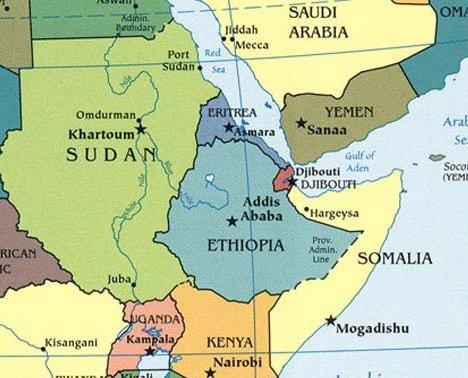May 23 , 2025
The East Africa Regional Meeting of the Committee of Intelligence and Security Services of Africa (CISSA) was held from May 11-15 in the political and diplomatic capital of Africa, Addis Ababa. The meeting of intelligence chiefs of member states was themed “Enhancing Regional Security Through Intelligence Cooperation” and brought together participants from 13 African countries.
In his opening remarks, Deputy Prime Minister Temesgen Tiruneh said the Eastern African region faces hard truths as violence continues to erupt, crime spills across borders, and armed groups exploit division and instability. “Ethiopia,” DPM Temesgen stated, “has long stood for solidarity—for regional peace—and for the conviction that no country can thrive in isolation while its neighbors grapple with insecurity.” Notwithstanding the manifold challenges the region continues to grapple with, we have also witnessed what is possible when nations choose collaboration over confrontation, he told participants. Among others, the DPM mentioned the fact that joint operations have disrupted criminal networks and intelligence sharing has saved countless lives.
Speaking of the need for ensuring lasting peace and security in the region and Africa at large, the Deputy Prime Minister underscored that it requires more than that: “They demand initiative, cooperation, unwavering commitment, and the strengthening of institutions dedicated to safety and stability.” Doing so is a guarantee that “a peaceful and prosperous Africa is within our reach—when we craft African solutions to African challenges, embrace modern technologies, and work together to prevent cross-border crime,” he added.
The Director General of the National Intelligence and Security Service (NISS), Redwan Hussien, on his part stated that,
“Over the last decade, East Africa has encountered a multifaceted evolving security landscape. The region has grappled with political instability, internal disputes, external interventions, escalating threats of organized crime, cyber-attacks, transnational terrorism, piracy, and climate-induced conflicts. Our region is undeniably confronting some of the most intricate security challenges in the world.”
The Director General noted these regional traits do not recognize borders, nor do they respect the sovereignty of each state. They, as such, are naturally transnational, necessitating a consolidated effort from all CISA member countries, he said.
In light of these complex, volatile and ever-evolving challenges, Redwan unequivocally stressed the importance of cooperation that cannot be overstated. He told participants that “We must work together to effectively combat such intricate security threats. We must also join forces and forge ahead effectively to combat such complex security challenges, establishing a united front on cooperation, mutual respect, and shared intelligence that fortifies our collective resilience.”
He added that leaders and experts in African intelligence and security services have a duty not only to safeguard their own nations but also to ensure the security of the broader Eastern African region.
He also said that “the era in which nations could insulate themselves from regional security challenges on their own has long passed.” He further stated that commendable strides in such aspects of fostering intelligence cooperation among East African countries were made possible through seamless cooperation while being cognizant of the fact that much is yet to be desired. In addressing the gaps and leveraging the advantages offered by shared security and intelligence resources, he noted, “Implementing effective intelligence-sharing mechanisms is essential to pre-empt potential crises before they escalate.” To quote,
“The challenges we encounter in East African region are indeed formidable. However, the path to overcoming these regional issues lies in enhancing multifaceted cooperation among the intelligence services of our member countries and our partners.”
In practical terms, he mentioned that these collaborative efforts have been instrumental in mitigating the impact of terrorism, cross-border crimes, illegal arms trafficking, and illicit financial flows and human trafficking.
It is to be recalled that the Committee of Intelligence and Security Services of Africa (CISSA) was established on August 26, 2004, in Abuja to help the African Union tackle pressing security challenges. Its headquarters was inaugurated in Addis Ababa on February 9, 2020, to provide the AU with timely intelligence and serve as a platform for member states to share expertise and address common threats.

